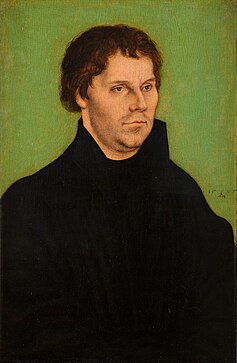
The Christian holy day of Pentecost, which is celebrated on the seventh Sunday after Easter, commemorates the descent of the Holy Spirit upon the Apostles and other followers of Jesus Christ while they were in Jerusalem celebrating the Feast of Weeks, as described in the Acts of the Apostles. In Christian tradition, this event represents the birth of the early Church.
A doxology is a short hymn of praises to God in various forms of Christian worship, often added to the end of canticles, psalms, and hymns. The tradition derives from a similar practice in the Jewish synagogue, where some version of the Kaddish serves to terminate each section of the service.

In the practice of Christianity, canonical hours mark the divisions of the day in terms of periods of fixed prayer at regular intervals. A book of hours normally contains a version of, or selection from, such prayers.

The Te Deum is a Latin Christian hymn composed in the 4th century. It is one of the core hymns of the Ambrosian hymnal, which spread throughout the Latin Church with the Milanese Rite in the 6th to 8th centuries, and is sometimes known as "the Ambrosian Hymn", even though authorship by Saint Ambrose is unlikely.

A church service is a formalized period of Christian communal worship, often held in a church building. It often but not exclusively occurs on Sunday, or Saturday in the case of those churches practicing seventh-day Sabbatarianism. The church service is the gathering together of Christians to be taught the 'Word of God' and encouraged in their faith. Technically, the "church" in "church service" refers to the gathering of the faithful rather than to the building in which it takes place. In most Christian traditions, services are presided over by clergy wherever possible.

"Gloria in excelsis Deo" is a Christian hymn known also as the Greater Doxology and the Angelic Hymn/Hymn of the Angels. The name is often abbreviated to Gloria in Excelsis or simply Gloria.
A sequence is a chant or hymn sung or recited during the liturgical celebration of the Eucharist for many Christian denominations, before the proclamation of the Gospel. By the time of the Council of Trent (1543–1563) there were sequences for many feasts in the Church's year.
Nones, also known as None, the Ninth Hour, or the Midafternoon Prayer, is a fixed time of prayer of the Divine Office of almost all the traditional Christian liturgies. It consists mainly of psalms and is said around 3 pm, about the ninth hour after dawn. Following Vatican II, the hour is optional in the Catholic Church: it may be said whenever convenient during the day or omitted entirely. However, bishops and priests are still expected to recite the full sequence of hours, as closely as possible to the traditional time of day.
Sext, or Sixth Hour, is a fixed time of prayer of the Divine Office of almost all the traditional Christian liturgies. It consists mainly of psalms and is said at noon. Its name comes from Latin and refers to the sixth hour of the day after dawn.
"Veni Creator Spiritus" is a hymn believed to have been written by Rabanus Maurus in the 9th century. When the original Latin text is used, it is normally sung in Gregorian Chant.

The Pentecostarion is the liturgical book used by the Eastern Orthodox and Byzantine Catholic churches during the Paschal Season which extends from Pascha (Easter) to the Sunday following All Saints Sunday.

A liturgical book, or service book, is a book published by the authority of a church body that contains the text and directions for the liturgy of its official religious services.

"Nun bitten wir den Heiligen Geist" is a German Christian hymn. The first stanza is a leise from the 13th century which alludes to the Latin sequence Veni Sancte Spiritus for Pentecost. It was widely known, and aside from its Pentecostal origin was also used as a procession song and in sacred plays.
"Veni redemptor gentium" is a Latin Advent or Christmas hymn by Ambrose in 88 88 iambic dimeter. The hymn is assigned to the Office of Readings for Advent, from December 17 through December 24, in the Liturgy of the Hours.

"Komm, Heiliger Geist, Herre Gott" is a Lutheran hymn for Pentecost, with words written by Martin Luther based on "Veni Sancte Spiritus, reple tuorum corda fidelium". The hymn in three stanzas was first published in 1524. For centuries the chorale has been the prominent hymn (Hauptlied) for Pentecost in German-speaking Lutheranism. Johann Sebastian Bach used it in several chorale preludes, cantatas and his motet Der Geist hilft unser Schwachheit auf, BWV 226.

"Komm, Gott Schöpfer, Heiliger Geist" is a Lutheran hymn for Pentecost, with words written by Martin Luther based on the Latin "Veni Creator Spiritus". The hymn in seven stanzas was first published in 1524. The melody is derived from the chant of the Latin hymn. The number in the current Protestant hymnal Evangelisches Gesangbuch (EG) is 126.
This page is based on this
Wikipedia article Text is available under the
CC BY-SA 4.0 license; additional terms may apply.
Images, videos and audio are available under their respective licenses.












